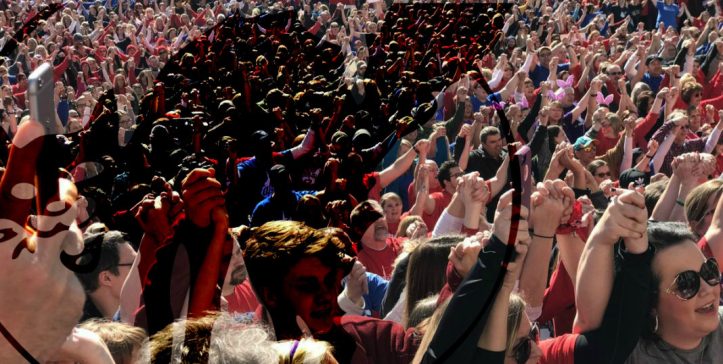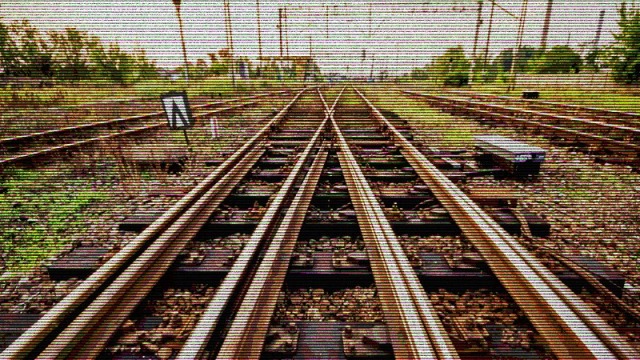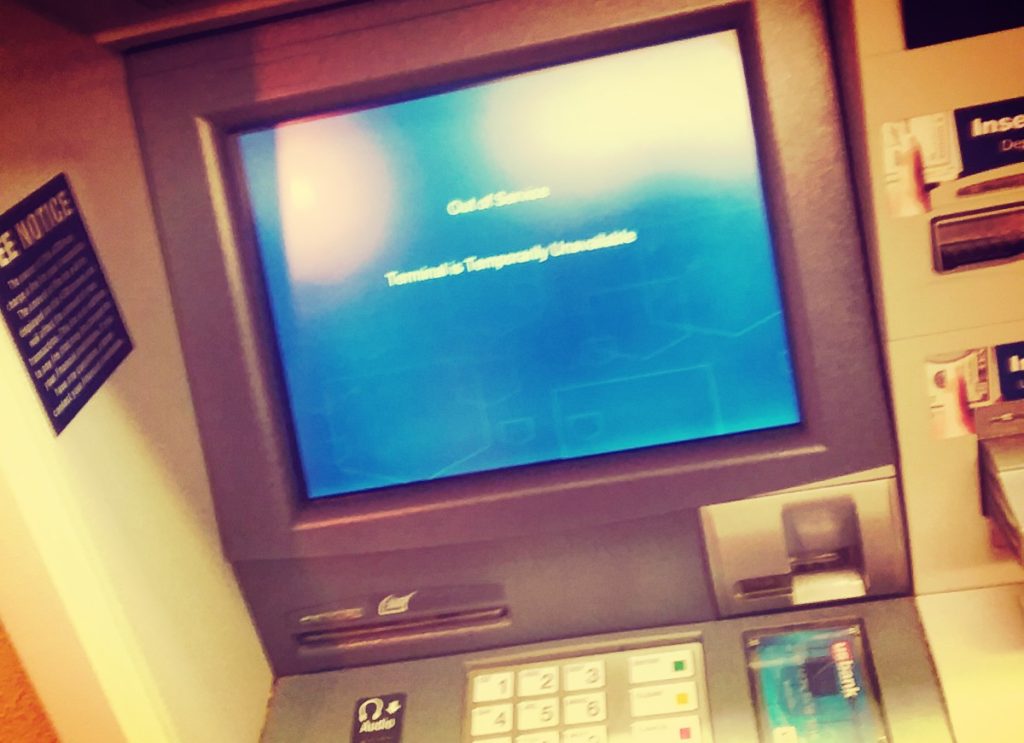from Radical Education Department
West Virginia has been rocked by a statewide strike by teachers, bus drivers, and other school employees. Today, March 2nd, the strike enters its seventh day.
Beginning on February 22nd, workers shut down public schools in all 55 of West Virginia’s counties, rejecting abysmal and declining teacher pay and the state’s attack on public employees’ health insurance. The Industrial Workers of the World (IWW), one of the unions helping to organize the strikers, reports the following worker demands:
-
A natural gas severance tax that creates a self-sustaining source of revenue for PEIA [Public Employees Insurance Agency] and public employee pay.
-
No regressive taxes, which ultimately affect working-class families more than the wealthy elite.
-
A permanent tabling to any and all legislation pertaining to co-tenancy and joint development, which allow large natural gas industries to engulf local landowners.
-
A pay raise of 5% per year over the next half decade.
-
A permanent tabling to any and all legislation pertaining to charter schools, voucher systems, and any attempts to privatize public schools.
On February 27th, Governor Justice announced an agreement with three of the major teacher unions in the state: a 5% pay increase for teachers as well as a 3% increase for state employees generally. Union officials and the governor alike pleaded for school employees to return to work, despite the fact that key demands remain unmet.
On March 1st, however–defying the governor and official union leaders–teachers refused to return to work, swarming the capitol and chanting “It’s not over.”
Meanwhile, that same day, even the modest pay raise was refused in the state legislature.
Below is an interview conducted via email between John Schultz of RED and Michael Mochaidean, a West Virginia teacher and member of the IWW.

JS: Can you give a brief account of how the statewide teachers’ strike in West Virginia began and developed? What role did the rank-and-file play, and what role did the IWW as well as the major teacher unions (AFT, WVEA, etc.) play?
MM: I am speaking here as an individual within the IWW, not as a representative for the West Virginia IWW or the IWW broadly speaking. […]
The statewide strike did not originate with the unions and their leadership, but rather with the rank-and-file of their membership. It began as an effort by members to do away with the strategies of leadership that seemed stale and unable to adapt to changing times. For example, leadership had endorsed Governor Jim Justice as a Democrat, but he soon changed his party and was in opposition to the unions and teachers by and large, so we felt that this strategy of endorsing and electing conservative Democrats would only backfire in the future. This movement was entirely rank-and-file in its beginning and as it has progressed over the past week. Both AFT and WVEA have worked jointly on these issues at the county and state level, with many members acting on behalf of the other.
This cross union solidarity raised the consciousness among many teachers of the need to perhaps consider uniting the associations in the future. The IWW is relatively new to West Virginia in the sense that we have no official chapter in the state and only a few disconnected members. However, the outpouring of support from IWW members has been immense. Wobblies from the southern states reached out to me after they listened to my interview with IGD and we began organizing for more direct control over the unions. We developed brochures, pamphlets, and literature to be distributed throughout the state to keep up the momentum for grassroots organizing within and outside the official associations. We also set up a strike fund to fund possible leafleting campaigns, renting halls, inviting speakers, and the like.
JS: What conditions as well as organizing strategies do you think helped make this strike a broad and powerful one? And what could others–not only unions, but social movements generally–learn from the West Virginia teachers?
MM: The anarcho-syndicalist tradition offers the best analysis, in my mind, as to how we can understand the teachers movement and its efficacy. The inherent contradictions in capitalism and the resource paradox nature of our state provided necessary conditions for public service personnel to slowly lose their rights as laborers. However, the history of West Virginia is one of mutual aid and community support that grows organically rather than through vanguard party structures. Therefore, anarchist traditions of mutual aid and support are more palatable and grew within the associations themselves. Furthermore, by framing this discussion as one of public employees versus the state, we engaged in the syndicalist tradition that workers of those areas should determine their destinies.
I would say that other social movements should try to look at what is happening here in the state as part and parcel of our current late stage of capitalism. Focus the discourse on larger, interrelated issues, but at the heart, deal with one issue that can connect all others. For us, it was our insurance plan. By tying the issues in our insurance plan to larger issues of worker autonomy, capitalism, and corporate elites profiting off of our labor, we could bring in these other points simultaneously without losing traction on the issue of healthcare.
JS: On February 27th, it was announced that the teachers’ strike would end: Governor Jim Justice had come to an agreement with leaders from three of the major unions organizing the strike. And yet the IWW-WVA points out that key demands haven’t been met: a tax on natural gas to help fund teachers’ health insurance and pay, for example. What does this deal signify about the major unions and their relationship to workers?
MM: Our statement [which can be found here] is reflective of the conditions of public employees who were overwhelmingly opposed to any compromise with the state that did not include long term funding for PEIA. The severance tax, proposed by Sen. Ojeda, has been continuously shot down by the legislature, in part because of the control the oil and natural gas industry lobby has in the state. Public employees seemed to feel that the deal was intended to fracture the unions and their support among all public employees, as well as the communities they serve. Thus, they decided to engage in another day of work stoppage (03/01) until these issues have been voted on.
We do not wish for rank-and-file members to leave their primary unions, but rather to engage in more direct efforts to hold their leadership accountable and ensure that whatever deals are made are done so with full knowledge by all of those involved.
JS: Teacher have often been on the front lines of union struggles in recent years. What role do teachers play within the broader struggles of workers in America? What possibilities are there for teachers to connect with and support other kinds of workers?
MM: Teachers had to take to the front lines in this state because other public employees – police officers, DOH, EMTs – are unable to call a walkout because their careers are deemed essential. Since we still have a relatively strong union presence for educators in this state, we used this avenue to push for benefits for all public employees, knowing that if we succeeded, they would succeed, but also that if we failed, they would fail, too.
Teachers are the public face of our communities, and work stoppages by educators can highlight the complexities of local autonomy, funding, and the economic conditions of our time.
JS: Where does the IWW in West Virginia go from here? Can you share some key short-term and long-term goals, not only as for teachers but beyond too?
MM: Short-term, we hope to push union leadership to not compromise on deals that their rank-and-file members reject. After all, it is the members that pay their salaries, so the members deserve to have a say in what is voted upon.
Long-term, we hope to grow the IWW in the state and in major areas where membership can be sustained. This strike has brought attention to issues we as an industrial union have been describing for over a century – the working class and the capitalist class have nothing in common. Business unions, while good in their own right, will make decisions for their members against their wishes. Since the IWW is entirely democratically run, we hope to raise awareness in the state about these ideas, how to continue organizing against capitalism and its effects, and connect the local struggles in our state with international struggles for worker solidarity.
JS: I’ll end with a broader question: what limits are worker struggles facing in the coming year, and what important possibilities are opening up for them? What do you think is needed for those struggles to become broader, more coordinated, and more powerful?
Currently, we are seeing electoral strategies touting the singular way that the working class can regain its rights in this state and in the country at large. The Democrats are pushing hard at midterms for a blue wave to bring a coalition of forces to Congress and state legislatures. However, in this state, we have a long history of conservative Democrats who differ little from the Republican Party. We do not wish to see this movement become simply another Wisconsin in 2011, where the working class struggle was diverted by establishment politicians into establishment politics. When that struggle ended, and we had lost, the momentum had been shattered. By not allowing our struggle to be co-opted, we can control the narrative, direct its course, and ultimately use direct action to gain our freedom.
Solidarity from WV.






